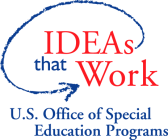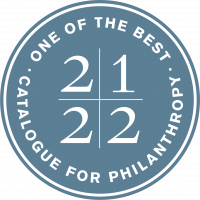AJE wants to share some information for families from OSEP (the Office of Special Education Programs in the US Department of Education) with our families.
Smart Beginnings 2023 Aug. 15-17, 3 p.m. EDT daily.
Smart Beginnings 2023 is designed to help families, providers, and leaders better support and promote developmental outcomes and educational excellence for infants, toddlers, children, and youth with disabilities.
During the virtual mini-conference, OSEP leaders and content experts will highlight action-oriented resources and evidence-based practices. Each session will address a different audience, but OSEP encourages participants to attend sessions outside of their roles as the content presented will vary.
Participants are eligible to earn continuing education units (CEUs).
Register now and learn more about the sessions and CEUs.
| August 15, 2023 Educators and AdministratorsRegister |
August 16, 2023 Parents and FamiliesRegister |
August 17, 2023 Early ChildhoodRegister |

OSEP also recently completed a series on School Discipline – you can find the posts in the series here.

EQUAL OPPORTUNITY FOR CHILDREN WITH DISABILITIES
Last month, the Department’s Office of Special Education Programs (OSEP) released updated guidance to ensure and strengthen the rights and protections guaranteed to infants, toddlers, and children with disabilities and their families under the Individuals with Disabilities Education Act (IDEA). The guidance and accompanying Dear Colleague Letter address IDEA’s “general supervision” requirement, which necessitates that states monitor local educational agencies (LEAs), as required under IDEA Part B, and early intervention service (EIS) programs and providers, as required under IDEA Part C.
OSEP is clarifying or expanding positions in the following areas:
- a state cannot ignore credible allegations of non-compliance made outside its formal monitoring visit cycle and must conduct proper due diligence in a timely manner;
- states must monitor all LEAs and EIS programs and providers at least once within the six-year cycle of the state’s plan;
- states must issue a finding of non-compliance, generally within three months of the state’s identification of the non-compliance; and
- states must review each individual case (not a sample or subset) of previously non-compliant files, or whatever data source was used to identify the original non-compliance, to properly verify correction by the LEA or EIS program or provider of child-specific non-compliance.
Through various monitoring activities and information received via state submissions, OSEP had observed the need for updated guidance to ensure states have the information needed to build robust systems of general supervision, with a particular emphasis on educational results, functional outcomes, and compliance with programmatic requirements. Such systems should be able to quickly identify and correct non-compliance, bolster accountability through the collection of timely and accurate data, and support the full implementation of IDEA.


Leave a Reply